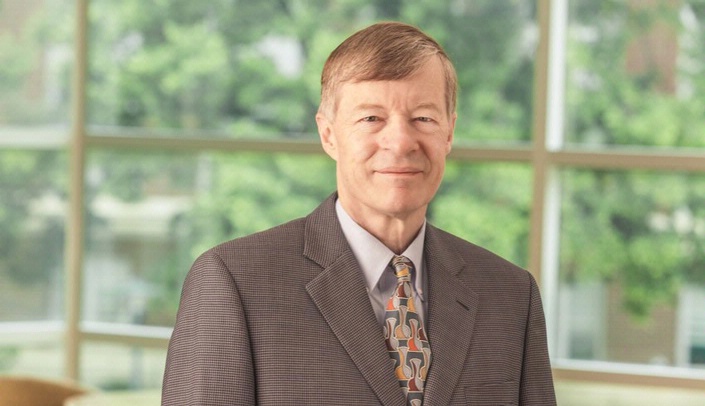About a year ago, Phil Smith, M.D., professor of internal medicine, division of infectious diseases, and medical director of the Biocontainment Unit, wanted to step away from patient care and focus more on teaching in the College of Public Health.
But, three days later, Nebraska Medicine’s first Ebola patient, Rick Sacra, M.D., arrived.
Fast forward to a slightly altered version of the original plans.
As of June 30, Dr. Smith reduced his work hours by 20 percent to share his Ebola expertise with other health professionals around the country.
Dr. Smith and the leadership team of Nebraska’s Biocontainment Unit (NBU), the largest unit in the nation, were thrust into the national limelight last year when three people who had become infected with Ebola arrived in Omaha for treatment. The team was ready for them and provided such stellar treatment that President Barack Obama called it “world-class care” in the Ebola fight.
Since then, the disease has become front and center in Dr. Smith’s life.
First, the leadership team was called on to create online Ebola education courses and share its gold standards of treatment and procedures. The downloadable courses provided instruction and resources for health care professionals, as well as the general public, around the world. Then, in January, Dr. Smith was invited by U.S. Sen. Ben Sasse to attend the President’s State of the Union Address.
“I don’t plan to fully retire for another two to five years,” he said. “At this point, I’m working as hard as I ever have and like what I do.”
In June, Nebraska Medicine – Nebraska Medical Center in partnership with the Nebraska Department of Health and Human Services was selected as one of nine health departments and associated partner hospitals to create a new network to respond to outbreaks of severe, highly infectious diseases. The U.S. Department of Health and Human Services funds the project.
In the latest development, Dr. Smith, 68, will now devote most of his time to his new role as one of three principal investigators of the National Ebola Training and Education Center (NETEC). He will work with co-investigators at Emory University, Atlanta, and Bellevue Hospital Center, New York. The ultimate goal is to bring 55 U.S. hospitals to a higher level of preparation for Ebola and other infectious disease threats.
UNMC and its primary clinical partner, Nebraska Medicine, will receive $5.1 million of the $12 million federal grant – the largest share of the three collaborating institutions.
As part of NETEC, Dr. Smith and his team will spend one-half of their time traveling, defining preparedness metrics, developing learning material repositories, and holding telemedicine conferences.
